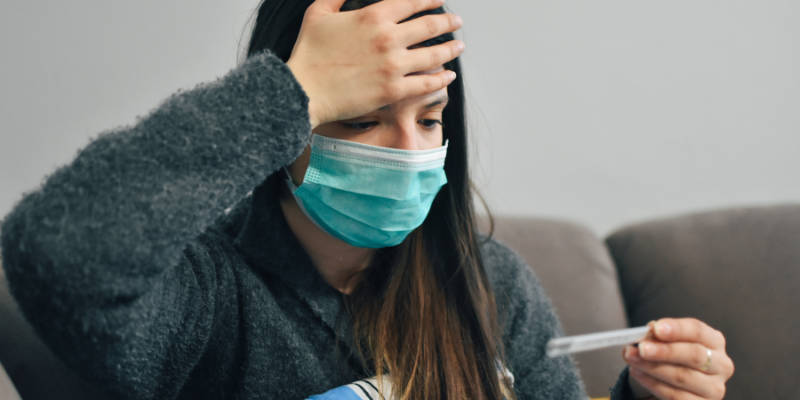
In times of our greatest celebrations, our darkest sadness, and in the moments in between, we seek out hugs from family, friends, and loved ones. Big bear hugs make you feel safe, warm, happy, comforted and connected. But with the pandemic, people aren’t getting these much-needed embraces. That’s bad news, because hugs don’t just feel good, they come with a host of brain benefits.
BRAIN BENEFITS OF HUGS
Some of the psychological and neurological benefits of wrapping your arms around your loved ones include:
- Triggers the release of oxytocin. Sometimes referred to as the “cuddle hormone,” oxytocin is a hormone and neurotransmitter that promotes a sense of well-being, relaxation, and bonding. It may be best known for its involvement in childbirth and breastfeeding to strengthen the bonds between mother and baby. More recently, it has become known as “the love hormone” as it brings forth feelings of trust, security, connection, calmness, and contentment. Some research suggests that intranasal oxytocin may be used to enhance relationships interpersonal connections.
- Boosts moods. Hugging increases levels of the feel-good neurotransmitters dopamine and serotonin to elevate moods. Receiving a hug also helps protect people from negative moods, according to findings in a 2018 study in Plos One.
- Decreases the stress hormone cortisol and lowers stress levels. Hugs protect against chronic stress, which reduces “brain reserve,” the extra cushion of brain tissue you have to deal with the curveballs life throws your way. Uncontrolled stress is also associated with reduced immune system function, increasing your risk of infections and illness. To keep stress at bay, it’s a good idea to “hug it out” on a regular basis.
- Lowers anxiety, depression, and feelings of loneliness. The simple act of embracing another human has positive impacts on psychological well-being. For example, a 2013 study from researchers at the University of Amsterdam found that hugs help reduce anxiety and fears in people with low self-esteem.
FEEL-GOOD HUG ALTERNATIVES
If you’re feeling hug-deprived, try these 3 alternatives to get some of the same mental health benefits that hugging provides.
1. Wrap yourself in a weighted blanket.
Weighted blankets, which weigh up to about 30 pounds, can provide a sensation similar to a full-body hug. Weighted blankets provide a form of deep pressure stimulation, a therapy that relaxes the nervous system. Research has shown that these heavy blankets improve sleep and can reduce symptoms associated with anxiety, as well as some of the symptoms seen in ADD/ADHD and autism.
2. Learn the art of self-hugging.
If you’re on your own and yearning for a hug, do it yourself. A therapeutic self-hugging technique called havening uses touch to create calming brainwaves that promote relaxation and a sense of well-being.
3. Cuddle with your pet.
Snuggling with your furry, 4-legged companions can produce many of the same benefits as hugging your 2-legged friends. If you can’t wrap your arms around your human loved ones, reach for your dog or cat.
If you’re feeling hug-deprived, try these 3 alternatives to get some of the same mental health benefits that hugging provides: wrap yourself in a weighted blanket, learn the art of self-hugging, cuddle with your pet.FLOOD YOUR OTHER 4 SENSES WITH POSITIVITY
Just because you can’t reach out and touch someone doesn’t mean you can’t create that same feeling. The human brain senses the world, and if you can change its inputs, you can often quickly change how you feel. Hugs activate the touch inputs, but if you can’t get a real hug you still have 4 other senses you can use to enhance positivity. Here’s how.
- Hearing: Music can help to optimize your state of being. In his powerful book, The Secret Language of the Heart, Barry Goldstein reviews the neuroscience properties of music. “Music stimulates emotional circuits in the brain … releases oxytocin, the cuddle hormone, which can enhance bonding, trust, and relationships. … Listening to music can create peak emotions, which increase the amount of dopamine, a specific neurotransmitter that is produced in the brain and helps control the brain’s reward and pleasure centers.”
- Smell: Certain scents are known to have mood-enhancing effects, especially lavender oil (for anxiety, mood, sleep, and migraine headaches), rose oil, and chamomile.
- Sight: Soothing images can impact your mood. Images of nature and fractals (never-ending patterns) can soothe stress. In a 2012 study in the Journal of Alternative and Complementary Medicine, people who looked at real plants or posters of plants experienced less stress waiting for medical procedures.
- Taste: Flavoring food with cinnamon, saffron, mint, sage, or nutmeg has been shown to enhance mood.
Depression, anxiety, loneliness, and other mental health issues can’t wait. During these uncertain times, your mental well-being is more important than ever and waiting until life gets back to “normal” is likely to make your symptoms worsen over time.
At Amen Clinics, we’re here for you. We offer in-clinic brain scanning and appointments, as well as mental telehealth, remote clinical evaluations, and video therapy for adults, children, and couples. Find out more by speaking to a specialist today at 888-288-9834 or visit our contact page here.





My little granddaughters and I have a 20 second hug routine whenever I see them! They love it and so do I! It is a perfect beginning of your day and ending for the evening!
Comment by Rebecca E Johnston — January 22, 2021 @ 5:27 AM
DR. Amen thank you for the work you do. I first saw you on PBS and I was intrigued by the data and education you provide.
Comment by Ann marie wright — January 22, 2021 @ 3:07 PM
Thank you for this informative site. Thank you for your extensive research on the LS . I have suffered from ptsd for years, without your research I would’ve never found it possible to claim back my personality, while I’m not there yet… I appreciate the tips and knowledge I have gained from your site.
I realize the Universe is trying it’s best to Heal my soul & it starts with my brain & the fact my thalamus and complete LS system was damaged in an assault on my life, (Domestic Violent attack, by my ex husband & practicing medical doctor) further damaged by the very court system of my County. After 20 yrs of isolation & pain of my broken neck, I long for a day in which tears have no place. I pray your help can somehow become more affordable to someone who gave up All monetary benefits of her lifestyle to cling to life, only to feel forsaken by local government further damaging my ptsd by frivolous litigation over 7 years. They even took my children without me being unfit! Simple money and local prestige of a narcissist doctor husband. I have suffered so much loss, it is mind blowing even for the physiotherapist who have tried to help me, to find myself.
Prayers please.
Thank you for publishing your work Dr. Amen.
The county depleted me of All resources, to a level of food stamps, Hud, etc .
Or I would pay the 5k and get more help!
I have been disabled by the assault, loss range of motion, however I am grateful to have no paralyzation while my neck was broken at C-2 through C-7, truly a miracle in itself. (5plates, multiple pins & cadaver bones) two surgeries.
The mental ptsd is definitely paralyzing all on its own. Combined with mental anguish perpetrated by my own county court system. They were never about justice, only dollars if who could pay for custody.
I had sole custody for 7 years, then I was out of money and could not work therefore losing all the way around.
Comment by Debra Sue Spangler — January 31, 2021 @ 9:41 AM
Is an Mri the same as a brain scan?
Thank you.
Comment by Katherine Shute — December 31, 2022 @ 8:56 AM
Hello Katherine, thank you for reaching out. Here is more information for you regarding SPECT scans compared with our other scans: https://www.amenclinics.com/blog/how-does-spect-differ-from-other-brain-scans/.
Comment by Amen Clinics — January 9, 2023 @ 9:24 AM
I wanted to find 7 best feel good alternatives, Found just 3 in the article. A bit disappointed with the misleading article
Comment by Person A — October 9, 2023 @ 9:52 AM
excellent post!
Comment by Doug Morris — November 11, 2023 @ 4:27 PM